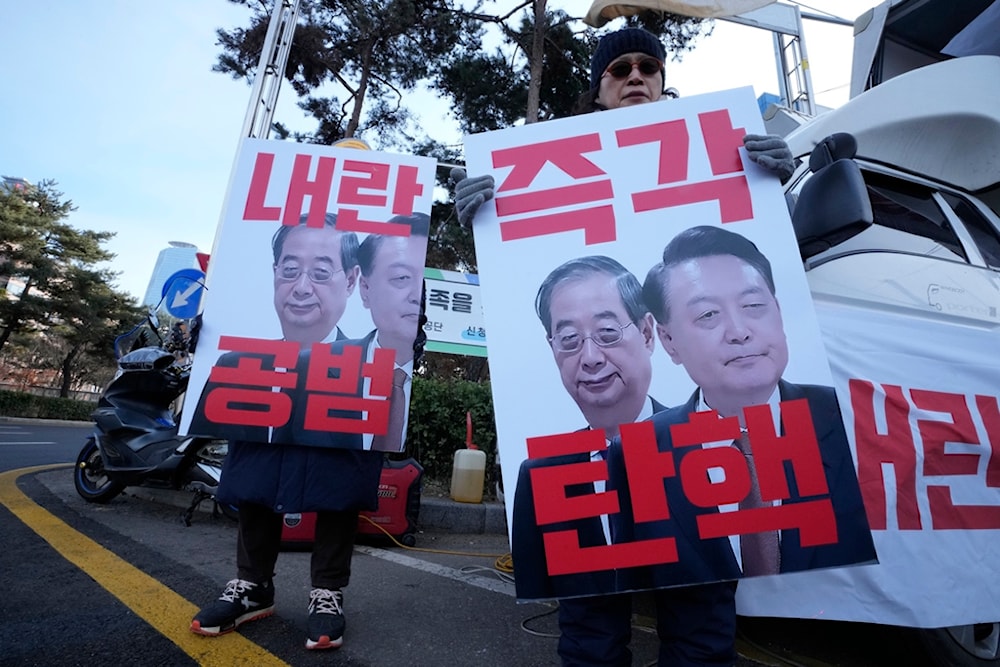South Korea economy in shambles after martial law fiasco
The South Korean economy is suffering as people lose faith in the won following the crisis that afflicted the country.
-

Protesters hold banners showing images of impeached President Yoon Suk Yeol, right, and acting President Han Duck-soo during a rally demanding Han's impeachment outside of the National Assembly in Seoul, South Korea, on December 27, 2024 (AP)
South Korea's won hit its lowest level against the dollar since 2009 Friday, reflecting the ongoing political and economic instability gripping the country. The currency's decline follows President Yoon Suk Yeol's attempt to scrap civilian rule in early December, which has shaken business and consumer confidence in Asia's fourth-largest economy.
The crisis escalated as lawmakers impeached Yoon in mid-December on charges of insurrection and, on Friday, also impeached acting president and prime minister Han Duck-soo for refusing to finalize Yoon's removal and bring him to justice. This led to Finance Minister Choi Sang-mok assuming the additional roles of acting president and prime minister.
Choi pledged to end the turmoil, stating, "We are confident that our robust and resilient economic system will ensure rapid stabilization."
The Constitutional Court now faces the task of determining whether to uphold Yoon's impeachment. With three of its nine seats vacant, a unanimous vote is required to remove Yoon. If not, he will return to office.
Efforts to fill the vacant seats were blocked by Han before his impeachment, deepening the crisis. Lawmakers from Yoon’s party protested vehemently, but Choi sought to project calm as he inherited a reduced 2025 budget.
Economic repercussions
The crisis unfolds against a backdrop of slowing economic growth, with GDP expected to rise just 2% this year due to weak global demand for semiconductors. Consumer and business confidence have dropped significantly, according to the Bank of Korea.
"Political polarization and uncertainty could hinder long-term investment in Korea," warned Gareth Leather of Capital Economics, comparing the situation to Thailand's economic stagnation after its 2014 coup.
Despite the turmoil, South Korea's economy has reportedly shown resilience, as the central bank acted swiftly in early December, injecting liquidity to stabilize markets, and the Kospi Index has lost less than 4% since the crisis began.
"Yoon's drastic measures surprised everyone," said Seoul National University economics professor Park Sang-in. "But Korean society’s maturity countered his actions. Our democracy has shown strength amidst this chaos."
Yeol's rule hangs in the balance
Yoon, a former prosecutor, was stripped of his presidential duties by parliament on December 14 after a brief declaration of martial law, which plunged the nation into its worst political crisis in decades.
The conservative leader now faces impeachment proceedings and criminal charges of insurrection, carrying potential penalties of life imprisonment or even the death penalty.

 3 Min Read
3 Min Read








